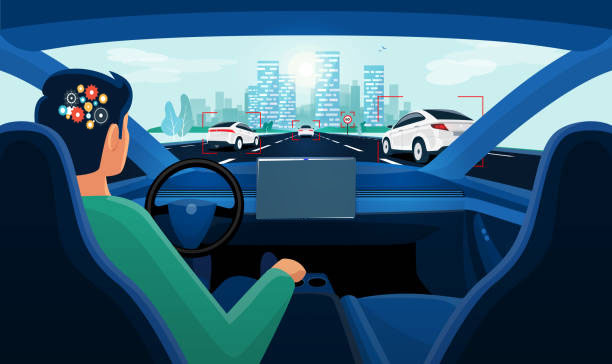Electric vehicles (EVs), once a promising glimpse of the future, have now firmly established themselves as a transformative force in the automotive industry. They represent far more than just an innovative solution to the pressing environmental challenges of our time. Instead, EVs have evolved into agents of profound change, influencing not only the way we drive but also the very essence of our behaviours and lifestyles. In this comprehensive exploration, we embark on a journey to uncover the myriad ways in which EV ownership shapes the psychology and actions of those who embrace this ground-breaking technology.

How EVs Influence Behaviour: Beyond their eco-conscious allure, EVs are catalysts for a series of shifts in consciousness that reverberate throughout the lives of their owners, fostering environmental mindfulness, prompting alterations in driving habits, affecting charging behaviour, instilling a sense of community and advocacy, nurturing fiscal prudence, forging deep emotional connections, and propelling the adoption of cutting-edge technologies. How EVs Influence Behaviour: As we delve into these intriguing facets, we begin to grasp the extent to which electric vehicles are not merely redefining the way we navigate our world but are also influencing the very essence of our existence, ushering in a new era where sustainability, innovation, and consciousness intersect to shape a brighter, cleaner, and more connected future.
1. Environmental Consciousness:
One of the primary reasons individuals choose to switch to electric vehicles is their commitment to reducing their carbon footprint. This environmental consciousness often extends beyond the decision to drive an EV and permeates various aspects of an owner’s life. How EVs Influence Behaviour: EV owners tend to be more aware of their energy consumption, which can lead to a reduction in overall energy use at home. This might include adopting energy-efficient lighting, appliances, and HVAC systems. Additionally, many EV owners actively support renewable energy sources, such as solar panels on their homes.
2. Driving Habits:
Owning an EV can alter one’s driving habits in significant ways. EVs offer unique driving experiences due to their instant torque and regenerative braking systems. This promotes smoother and more efficient driving styles, as rapid acceleration and heavy braking are less common. How EVs Influence Behavior: Such habits not only reduce energy consumption but also lead to less wear and tear on the vehicle, resulting in reduced maintenance costs over time.
3. Charging Behavior:
The availability of charging infrastructure plays a pivotal role in an EV owner’s lifestyle. Unlike gasoline-powered vehicles with ubiquitous refueling options, EV owners may plan their journeys around charging stations. How EVs Influence Behavior: This aspect can influence travel patterns and even vacation destinations. For instance, an EV owner might choose accommodations based on the availability of charging facilities. As the charging network continues to expand, this behavior may become less pronounced, but it remains a significant factor for many early EV adopters.
4. Range Anxiety and Confidence:
One of the well-known challenges of electric vehicle ownership is “range anxiety,” the fear of running out of battery power before reaching a charging station. This anxiety is most pronounced among new EV owners who are not yet familiar with their vehicle’s capabilities. How EVs Influence Behavior: However, as drivers gain experience and confidence in their EVs, range anxiety tends to diminish. Owners learn to trust the vehicle’s range estimates and become adept at planning routes that align with charging options.
5. Community and Advocacy:
Electric vehicle ownership often leads individuals to join a community of like-minded enthusiasts. Online forums, social media groups, and local clubs provide platforms for EV owners to share information, experiences, and advice. How EVs Influence Behavior: These communities foster a sense of belonging and support, making the EV ownership experience more engaging. Moreover, many EV owners become advocates for electric vehicles. They passionately share their positive experiences with friends, family, and colleagues, contributing to the spread of EV awareness and adoption. Some even take a more active role by participating in events, workshops, and outreach programs aimed at promoting EVs in their communities.
6. Cost Consciousness:
While electric vehicles can have a higher upfront purchase price compared to their gasoline counterparts, owners tend to become more cost-conscious over time. How EVs Influence Behavior: This heightened awareness stems from the ongoing savings realized through reduced fuel and maintenance costs. EV owners often calculate their total cost of ownership, factoring in the lower cost of electricity compared to gasoline and the minimal maintenance requirements of electric drivetrains. As a result, they may adopt more budget-conscious lifestyles and allocate the saved funds to other priorities.
7. Emotional Connection:
Electric vehicles evoke a unique emotional connection in their owners. The quiet and smooth operation of EVs can be deeply satisfying, creating a sense of serenity and tranquility while driving. How EVs Influence Behavior: Many owners describe the experience as “zen-like” due to the absence of engine noise and vibrations. This emotional bond can lead to longer ownership periods. Some EV owners become attached to their vehicles and are reluctant to part with them, even when newer models become available. How EVs Influence Behavior: This loyalty is not solely based on practical considerations but is also driven by the emotional connection they have developed with their EVs.
8. Technological Adoption:
EV owners tend to be early adopters of new technologies, both within and beyond the automotive sphere. The electric vehicle itself represents cutting-edge technology, with advanced battery systems, regenerative braking, and sophisticated control systems. How EVs Influence Behavior: This familiarity with technology often extends to other aspects of their lives. For example, many EV owners are quick to embrace smart home energy management systems. They may invest in home solar panels and battery storage solutions to further reduce their carbon footprint and optimize their energy use. Additionally, they are more likely to explore and implement energy-efficient technologies and automation in their homes.
A study titled “Research on Active Sound Control in Electric Vehicle (EV) In-Vehicle Based on Engine Order Sound Fitting” has been published in Sage journals. This study delved into the sounds produced by both electric and regular cars in order to gain a deeper understanding of them. To do this, the researchers employed a specialized technique known as Short-Time Fourier Transform (STFT) to thoroughly analyse these sounds and ensure they fit well. Furthermore, the study established a set of guidelines dictating how electric cars should sound, taking into consideration factors such as the source of the sound and its volume. Notably, the researchers discovered ways to enhance the sound of electric cars, especially when they accelerate. They also developed a unique system to manage the sounds inside electric vehicles, which proved capable of making these sounds more pleasing, particularly when the vehicle accelerates. In summary, this study provides valuable insights on how to improve the auditory experience of electric vehicles, making them sound more pleasant and comfortable for passengers.
The adoption of electric vehicles is not just a choice of transportation; it’s a lifestyle decision that influences various aspects of an individual’s life. EV ownership fosters environmental consciousness, alters driving habits, influences charging behavior, and cultivates a strong sense of community and advocacy. Moreover, it encourages cost-consciousness, fosters emotional connections, and promotes the adoption of cutting-edge technologies.
As electric vehicles continue to gain popularity and become more accessible, these behavioural changes are expected to become even more pronounced across society. Understanding the psychology of electric vehicle ownership is essential for automakers, policymakers, and researchers alike. How EVs Influence Behaviour: It provides insights into consumer preferences, enables more effective marketing strategies, and supports the development of sustainable transportation solutions for the future. Electric vehicles are not just changing the way we drive; they are transforming the way we live.

3 thoughts on “Electrifying Minds and Roads: How EVs Influence Behaviour”